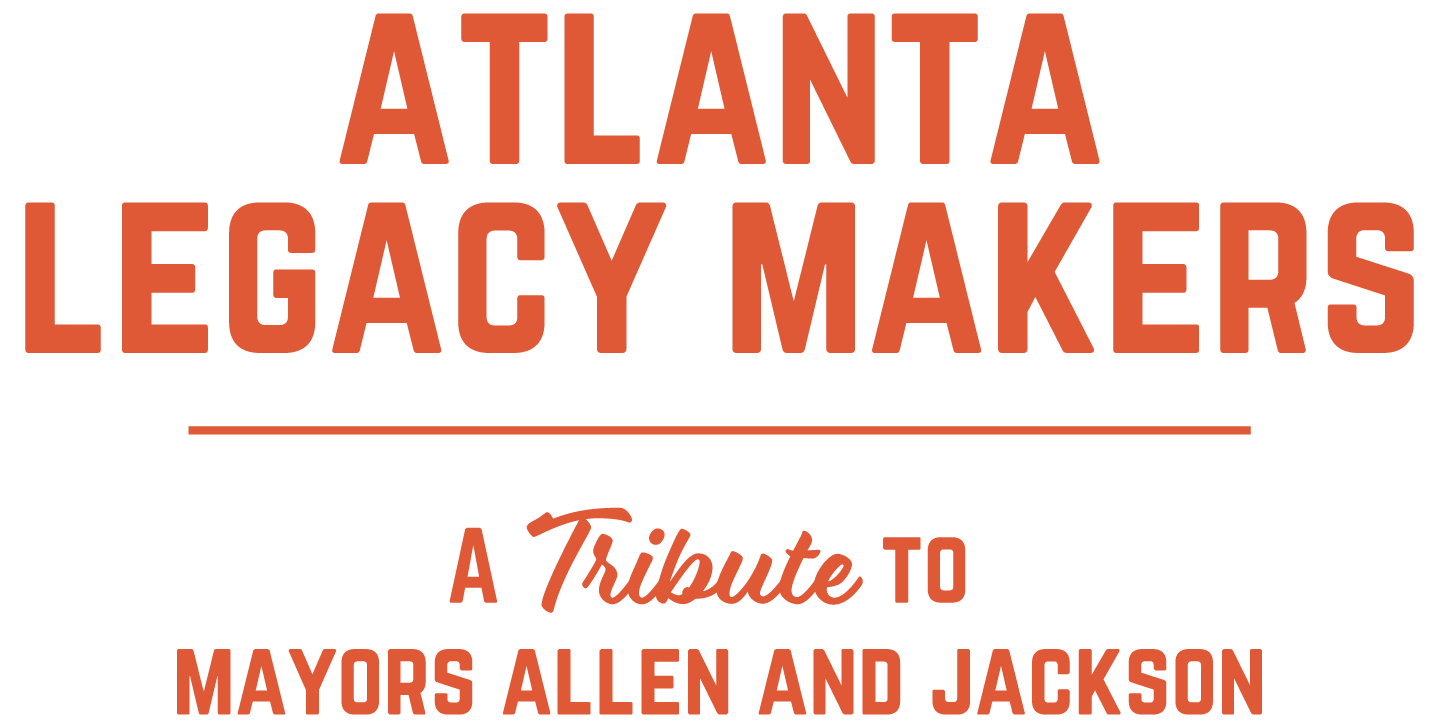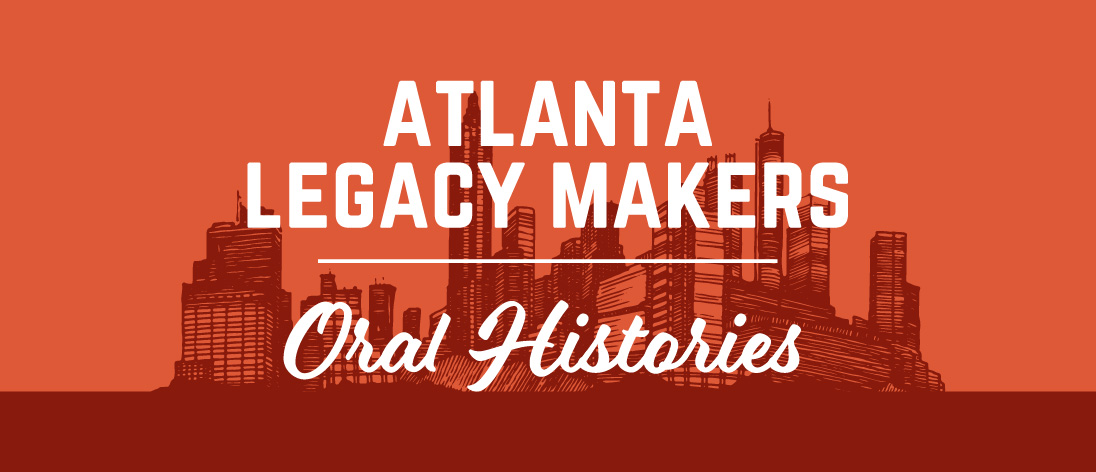

Joseph Bankoff
Daniel Blackman
“But the greats that I met, it was Reverend James Orange, Reverend C.T. Vivian, Reverend Joseph Lowery, Maynard Jackson, and John Lewis. I met these five individuals my freshman year in college…, they invited me to Selma.. for the annual commemoration in a car with Reverend Lowery, Reverend Vivian and we met with John Lewis. We got down there and when I saw the crowds of people and the flowers that were being bought, the interviews that were being done, the speeches they were given. That’s when it hit me. Three years after I met these gentlemen, I realized who they were. And I think that that was probably the most humbling experience of my life because not one time did they ever make me feel like I wasn’t welcome…But to have had those experiences, it shaped who I am. And it made me love a city that I did not realize [was] the embodiment of greatness. I mean, when we say the bedrock of the civil rights movement, I don’t think people understand that at one moment they were all alive with Coretta and we had all these living icons and civil rights leaders and now most of them are gone and we have to cherish their memories.”
Sheila Pree Bright
“ I mean, think about, they say the new blue and a lot of people are migrating to the South. And I think that’s where we can, as an Atlanta, develop that collectively, that economic power, because you have the hip hop industry here….So I think from a global standpoint, I think that’s very powerful because of what Atlanta represents. I saw a photograph of Julian Bond holding his nine month old daughter, Phyllis Bond, and a well-known photographer by the name of Richard Avedon, who came to Atlanta in the 1960s to photograph all of the civil rights leaders. And when I saw that image, I thought it was so powerful…And I think that’s very important. And I think that’s an important piece for Atlantans and Atlanta. For it to be seen globally is just not about the 60s.”
Park Cannon
“So it’s an interesting time, I think, to just think about how in the Old Fourth Ward we want to continue to attract all of the best. We have Grady Hospital, we have Emory Hospital. We have some of the best theater and arts at the Fox Theater. And if we’re talking about balanced growth at this moment, we’re talking about how when the conversation on gambling and casinos bringing revenue to the State of Georgia, how does that affect the hospital system? How does that affect this, the nonprofit theater that is here and trying to thrive? If you’re bringing other cultures and artists, that’s great. But how do we actually ensure that the legacy residents are beloved and taken care of? And how do we make sure that we’re also setting up our communities for financial success? But actually being in a community with people and understanding it really has prepared me to be at the state capital and to be looking at these 30 pages pieces of legislation that are deciding this very issue. So I encourage people to stay in touch with their neighborhood planning units and do some of the things that I think happen in the Olds Fourth Ward that keep us a tight-knit community.”
Robyn Jackson
“Thankfully, Mayor Ivan Allen brought the Braves to Atlanta. So we have a lot of thanks him for that. But we would go every year to opening night. That was always it was like almost mandatory attendance would go opening night. We would go to the Varsity beforehand. You know, I still feel love. Going to the Varsity brings back lots of memories. I even had one of my I think my 35th birthday party. I think we had it at the Varsity. But anyway, I do remember I just remember being really, really happy and going to the Braves and enjoying that stadium. I remember watching it being imploded. And I had tears sitting in from the tears running down my face down. There are just so many good memories there, you know.”
“…And when [Martin Luther King’s] funeral actually happened, my father at the time was working at what was known as the Old Main Post Office, which sits at your side and MLK. And we sat in his corner office and watched Martin Luther King’s Cortes come by from the Capitol on the way to Morehouse, I think it was Morehouse where his funeral was, know so that when you’re that close to that, you are immersed in it and you’re well aware of what’s going on in your city. And when you see it on the evening news and world news, I mean, it just. Kind of made you sit down and say, wow, you know, I live here. That’s me that’s my hometown. So, yeah, it changed. I mean, it kind of changed your perspective again, where you live and where you grew up.”
Sagirah Jones
Bem Joiner
“You know, folks, they came from St. Louis and Jackson, Mississippi and Jacksonville, Florida and New York, Harlem and, you know, L.A. that came here seeking some sort of Blackness and connectivity rooted in and in some sort of progression to their life. When you take the ingenuity and the magic that we say Black people have in general, like, that’s just what we say. We get what you take all these different types and you put it in one locale. And it’s a locale where the native base was already kind of thriving then. That’s like a gumbo of Black culture. So when you put the three together, civic, corporate, and culture that those three. Those three “Cs” really justified the statement that many influence everything.”
Jenny Levison
Sarah Stein
Dionne Stewart
Charles Stephens
Sam Williams
“…the other kinds of things that I’ve heard over the years that stick to my mind. One is that Atlanta is a city that’s got its heart in the past, but its mind in the future. And that’s certainly true to this day, whether it’s dealing with technology, health care, higher education, the leading things that are driving our economy. And it would also tell you that while it understood the southern heritage, it also understood the civil rights and multicultural movement that makes this city so unique among other cities in this nation. So to me, those are two things that, you know, planting a flag in the hill and then capturing it. And the other one is that our heart’s mixing in the past, but our head’s in the future…We made mistakes, yeah. We fall for some battles and we lost. And they’re going to be people that are going to say we didn’t do enough, no matter how tough it is, and I think that’s inevitable. But I think also if they look at the things that are going on in America today, they’re going to say, “Hmmm, you know? Atlanta led Georgia.”
Lejuano Varnell
Cara Yar Khan
“The first visit with Jim Shepard was in November 2012, and I … moved to Atlanta to settle down, at least for a few years, which for me, you know, I thought, oh, 3, 4 years, maybe tops…And I’m still here. And I think that for me, as a humanitarian who morphed into an entrepreneur speaking as a disability advocate, Atlanta has so much to offer, you know, especially with what’s happened in the past year, 2 years, this uprising of the social justice movement. This is the place that I’m so grateful to have been while that was happening because there are so many resources at your fingertips. The National Center for Civil and Human Rights, for example, is a wonderful introduction to the American civil rights movement to get a deep dove. But then, as mentioned, so many people and wonderful organizations to learn the full history of the United States and to get involved in local social justice and civil rights issues that I’m passionate about. I couldn’t imagine another city that would give me that much in terms of my passions and where I could be successful as an entrepreneur.”
